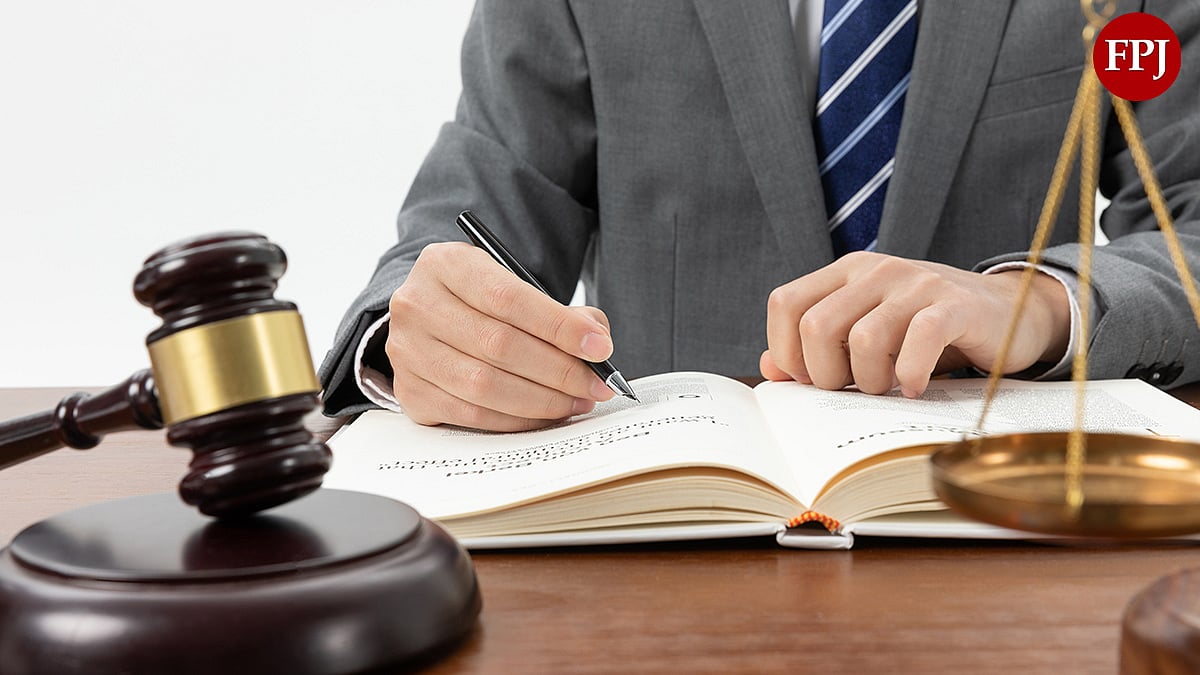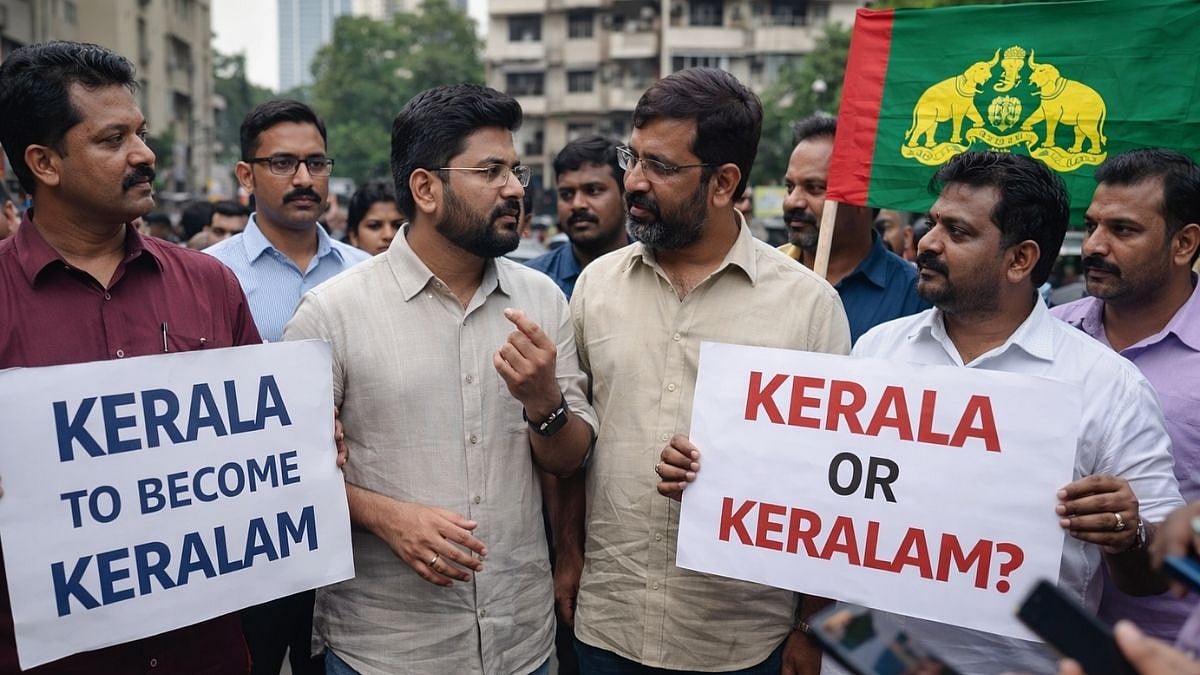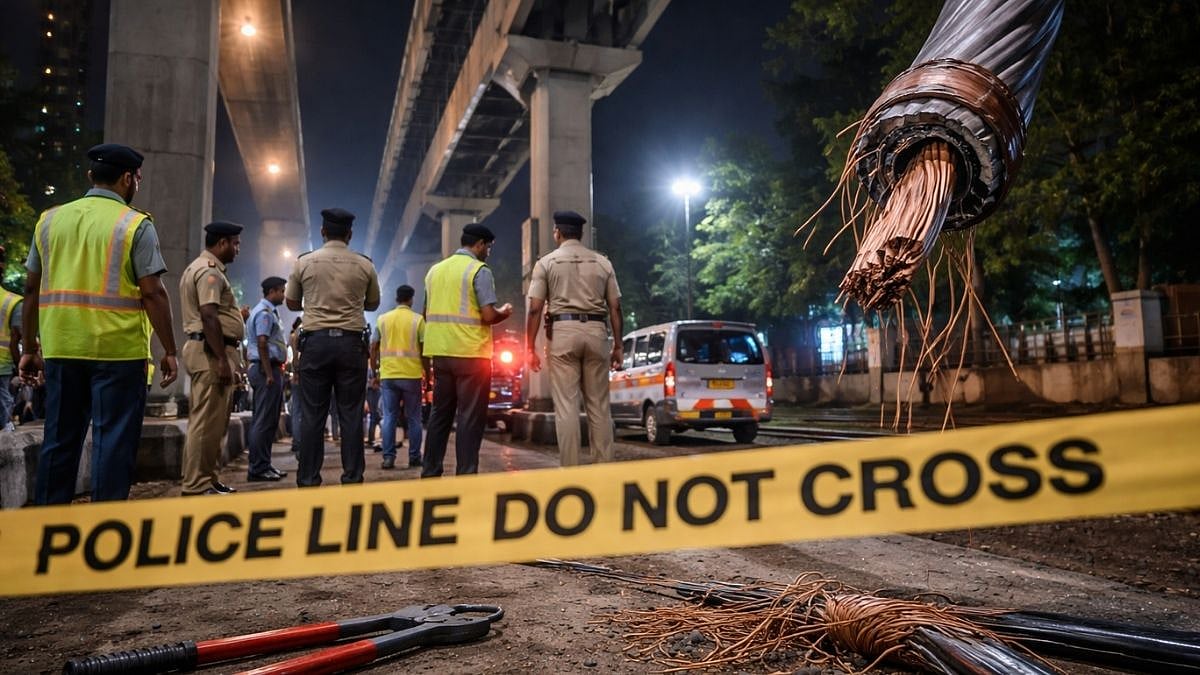Recently, a viral video circulated on social media featuring a teacher named Tripta Tyagi instructing students at Neha Public School in Muzaffarnagar to physically harm a Muslim child. Tyagi not only encourages the students to hit the crying child harder but also advocates teaching a lesson to all Muslim children.
In response to the incident, Mohammad Zubair of Alt News disclosed the identity of the minor student in a social media post. However, this led to an FIR being filed against Zubair by UP Police. In a twist that Orwell would be proud of, the UP police accused him of the crime of revealing the identity of the minor in question.
Simultaneously, Monu Manesar, who is literally accused of murdering two Muslim men by burning them alive, remains unprosecuted and even posts videos online. Adding to this, figures like Umar Khalid and Sharjeel Imam remain under arrest for crimes that could fit into a Ray Bradbury novel, although they might seem too fictional for reality.
While the UP Police aims to arrest Zubair instead of Tripta Tyagi, the Indian judiciary maintains the arrest of Umar and Sharjeel while sparing Monu Manesar.
This might feel banal by now. After all, while a child has been slapped, far worse has happened in the past and has been accepted. Men have been lynched for their food choices, rapists have been celebrated based on the religion of their victim, and individuals like Umar, Sharjeel, and even pregnant women like Safoora Zargar have been detained.
So, why should this be the moment that shocks us?
In Hitler's Willing Executioners, Daniel Goldhagen examines how ordinary Germans were active participants in the Holocaust, driven not solely by orders but also by anti-Semitic beliefs. The controversial book argues that the Nazi regime's gradual escalation of discriminatory policies normalised cruelty, desensitising the population to violence. Goldhagen highlights how institutional structures and peer pressure influenced compliance with morally reprehensible actions, shaping a society where such behaviour became the norm.
A quote from the book that I often return to reads, “But the one great shocking occasion, when tens or hundreds or thousands will join with you, never comes. That’s the difficulty. If the last and worst act of the whole regime had come immediately after the first and smallest, thousands, yes, millions would have been sufficiently shocked — if, let us say, the gassing of the Jews in ’43 had come immediately after the ‘German Firm’ stickers on the windows of non-Jewish shops in ’33. But of course, this isn’t the way it happens. In between come all the hundreds of little steps, some of them imperceptible, each of them preparing you not to be shocked by the next. Step C is not so much worse than Step B, and, if you did not make a stand at Step B, why should you at Step C? And so on to Step D.”
This suggests that in a world that feels uncertain, it's tempting to ignore the news and social media, focusing on our daily routines and simple pleasures. For some of us, the daily occurrences of human rights violations become routine. We might even start to think things aren't so bad, and that maybe we're overreacting. But when do we truly need to be concerned? Was there a moment in history when people knew it was time to be alarmed, like in Nazi Germany?
Sometimes you feel something churn inside, and you reach out to someone you trust, and they say, “Perhaps you're needlessly getting anxious. Predicting that small actions will lead to big consequences. But who truly knows the ending when it's not yet written? On one side, you face pressure from those against you — the law, the regime. On the other, your friends wave away your worries as negativity. So, you find solace in convincing yourself that maybe they are right and you are not, maybe you are needlessly being an alarmist.”
Slowly, fear seeps in. Fear isn't unfamiliar; it's become almost normal, like a roommate. We make small choices to avoid trouble, choices even indiscernible to us, like ordering certain foods secretly or not at all, advising friends to be practical in love and not to get too emotionally entwined with someone who's not of your faith. You think you are just being practical. But things are not terrible, for we've heard that when terrible things really happen, it's obvious, not ordinary.
Ray Bradbury foresaw a future where individuals, unsettled by complex or thought-provoking concepts, might eventually seek self-imposed censorship. They'd crave shelter from any information that disrupted their neatly constructed world. This inclination, naturally, aligns with the government's aims, although it's rarely enforced with coercion. As an elderly figure named Faber points out in Fahrenheit 451, "Remember, the firemen are rarely necessary. The public itself stopped reading of its own accord."
Right now, it might not be full-fledged oppression, just a quiet dullness. Politics might not seem to disrupt our routines — work, meals, outings. This might lead us to believe that politics doesn't matter much. We might even censor our thoughts to keep the peace with those we care about. But what we might not realise is that in politics, being silent is the same as support.
If you will only accept it when people are being taken to gas chambers and trains running to Auschwitz, then it’s a fool’s errand. If you think totalitarianism would only be real when we can see it outside your windows, when a cop wearing an armband with a weird sign stops you at checkpoints, when you have to report your daily activities to the local police stations, when the TV tells you it is here, we will never be able to identify it. There's no rule that fascist leaders will only come with a trademark toothbrush moustache.
Of course, it is also true that for many of us who speak English, our lives mainly involve work and buying things aka consumerism. These things can continue even in a system that's becoming more controlling. People often think that living under a dictatorship means seeing obvious signs of rights being taken away every day, but the reality is trickier.
Dictatorship often takes care of the people who give it power, making things seem better for them. Think of rich and powerful groups in history, the privileged whites in early America or the sprawling Saudi Arabian elite. These are the voices that get heard. The truth of living under such a system becomes clear only later, when we look back at a history filled with pain. To understand what's happening, we should ask those who aren't favored by the rulers. The true texture of life under such dominion is laid bare only in retrospection, often as marginal notes in a history drenched in blood.
In Bradbury's Fahrenheit 451, the protagonist Montag awakens to the truth of a deeply repressive society, compelling him to resist. Montag dons the mantle of a fireman, yet his journey delves into the essence of his vocation. In this dystopian tableau, the firemen's role metamorphoses — they kindle flames rather than dousing them. It's a world where ideas and freedom are suppressed, also symbolised by the burning of books.
What would an Indian Montag do?
For our struggle, the struggle of those who, in some ways, receive the patronage of those in power, goes beyond merely evading the clutches of oppressive authority; it entails a responsibility to resist becoming complicit in its mechanisms and to refuse silent acquiescence. While it's crucial to safeguard oneself from falling victim to power's abuses, the challenge transcends personal safety. It compels us to examine our ethical stance and our engagement with power structures.
We need to understand, anticipate, and counter the ways in which power seeks to control and subdue individuals. It involves safeguarding one's rights, dignity, and autonomy from being trampled upon by oppressive forces.
But it's not enough for those with the gift of privilege to evade becoming a victim; it's about refraining from becoming an instrument of oppression ourselves. It's about recognising the seductive allure of power and the potential it holds to transform us into perpetrators. To be silent, to train yourself to be unaffected or worse be indifferent is akin to standing by them.
Permitting oppression to flourish through silence or inaction is as damaging as direct participation. Our inaction can legitimise and normalise abuses of power. To remain silent is to endorse, implicitly, the machinery of oppression. Be vigilant, speak out against injustices, and actively challenge oppressive structures. Actively resist being drawn into the very systems that perpetuate oppression.
The challenge we face isn't just about avoiding being victims of this kind of power. It's about not becoming part of it or silently allowing it to happen.
Raj Shekhar Sen is based out of San Francisco and works in the area of data privacy regulations. He also runs a podcast on politics called the Bharatiya Junta Podcast




